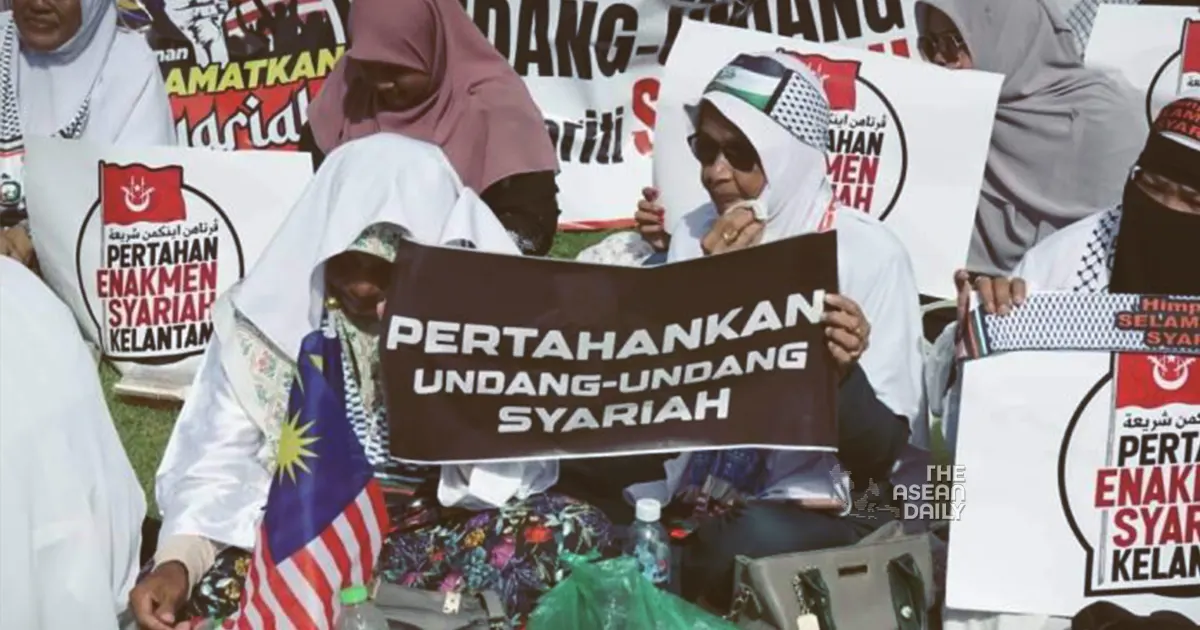1-4-2024 (JAKARTA) Calls for the implementation of Sharia law are gaining traction across Muslim-majority nations like Malaysia and Indonesia, stoking concerns among religious minorities about the erosion of diversity and personal freedoms. In these secular states, the debate over Islamic jurisprudence has taken on profound cultural and political dimensions, revealing a deeper clash of values that could shape their societies for decades to come.
In the wake of a landmark court ruling that struck down several Sharia laws in Malaysia’s Kelantan state, a groundswell of outrage has erupted from conservative Muslim quarters. The Islamic party PAS, which governs Kelantan, denounced the decision as a “Black Friday” for the nation, claiming it undermined the very institution of the monarchy and the supremacy of Islamic teachings. For the party’s adherents, embracing Sharia is not merely a matter of politics but a sacred principle enshrined in the nation’s constitution.
“It’s not about politics but about principles,” asserts PAS working committee member Muhammad Khalil Abdul Hadi, the eldest son of the party’s president. “In the Federal Constitution, rights are given to Islam in many aspects, such as Sharia, marriage, and education. It’s not at the level we want now, but we will always work hard to empower it and fight anyone who wishes to sideline it.”

Yet, for many moderate Malaysians and non-Muslims, the spectre of stricter Islamic law looms ominously, stoking fears of a curtailment of civil liberties and an encroachment on the nation’s cultural tapestry. A Kelantanese man, who wished to remain anonymous, expressed trepidation that draconian Hudud punishments like amputations and stonings could one day be applied indiscriminately, even against non-muslims.
Analysts contend that PAS’ fervent advocacy for Sharia is largely a game of political brinkmanship, aimed at rallying its conservative base and reinforcing its brand as the torchbearer of Islamic supremacy. “They know they cannot win because they cannot override the Federal Constitution,” remarks Professor James Chin of the University of Tasmania. “It’s all about games rather than reality.”
Similarly, in neighbouring Indonesia, the quest for a more prominent role for Sharia has taken on an increasingly menacing overtone for religious minorities. In the predominantly Muslim province of West Sumatra, where a whopping 97% of the population adheres to Islam, Christians, Buddhists, and Hindus face daunting obstacles in building houses of worship, securing burial grounds, or even staging religious gatherings.
“We just want a safe place for us to pray and stage religious activities. We have lived (in West Sumatra) for decades. We have considered it our home,” laments a local Christian deaconess, who fears reprisals for speaking out. Her congregation has resorted to holding services on a military base and in clandestine Bible study sessions, perpetually fearful of disruption by hostile Muslim groups.
The enactment of a new law recognising Sharia as the bedrock of West Sumatran tradition has only heightened anxieties among minorities, who worry it will embolden hardliners to further harass them and pressure local authorities into enacting more discriminatory policies. “Freedom of expression and freedom of religion are already declining in West Sumatra,” cautions Bonar Tigor Naipospos of the Setara Institute for Peace and Democracy. “The legal basis (for discrimination) is now stronger.”

At the heart of this contentious issue lies a profound clash of values between Islamic puritanism and the pluralistic, multicultural fabric that has long defined these Southeast Asian nations. Proponents of Sharia contend that Islamic jurisprudence, derived from the Quran and other sacred texts, offers a comprehensive moral and legal framework that would benefit all citizens, irrespective of faith.
“This is because the laws are based on legal sources for Muslims such as the Quran,” asserts Malaysian student Hasyimah Ayuni, who believes embracing Sharia is her sacred duty as a Muslim. A 2022 study by the Pew Research Center revealed that 86% of Malaysian Muslims and 64% of their Indonesian counterparts favoured adopting Sharia as the official law of their respective lands.
However, critics argue that the implementation of religious edicts in a pluralistic society is inherently discriminatory and a threat to democratic ideals. Human Rights Watch has documented over 700 Sharia-inspired regulations across Indonesia, many of which mandate conservative Islamic dress codes, restrict the building of non-Muslim houses of worship, and bar non-Muslims from holding public office.
“The presence of Sharia-inspired bylaws has paved the way (for) the decline of democracy, civil liberties and many other rights in these Muslim-majority areas,” laments Andreas Harsono, an Indonesia researcher for the rights group.

At its core, the Sharia debate exposes a deeper ideological rift between those who envision a state governed by religious orthodoxy and those who champion a more secular, inclusive brand of governance that safeguards the rights of all citizens, regardless of creed. It is a clash that transcends mere legal semantics, striking at the very heart of how these nations define their national identities in an increasingly polarised world.
As the clamour for Sharia grows louder, moderate voices caution against succumbing to the siren call of religious dogma at the expense of democratic freedoms and societal harmony. “People want all sorts of things, but their wants are not realistic with our situation,” observes Ismail Yahya, former Chief Syariah Judge of Terengganu. “There is still a lack of knowledge and understanding about the laws.”
Ultimately, the resolution of this conflict will hinge on striking a delicate balance between respecting Islamic traditions and upholding the universal values of equality, tolerance, and freedom of conscience that have long been the hallmarks of these nations’ rich cultural legacies. As the debate rages on, the future of Southeast Asia’s Muslim-majority societies hangs in the balance, a testament to the enduring struggle between faith and pluralism that has defined civilizations across the ages.
The rising calls for Sharia law in Muslim-majority nations like Malaysia and Indonesia are more than just a legal or political quandary – they represent a profound clash of values that could reshape the very fabric of these diverse societies. As hardliners clamour for the strict application of Islamic edicts and religious minorities fear for their freedoms, a delicate balance must be struck between honouring Islamic traditions and upholding universal democratic ideals. The resolution of this conflict will likely define the national characters of these Southeast Asian nations for decades to come, a pivotal test of their ability to harmonise faith and pluralism in an increasingly polarised world.




